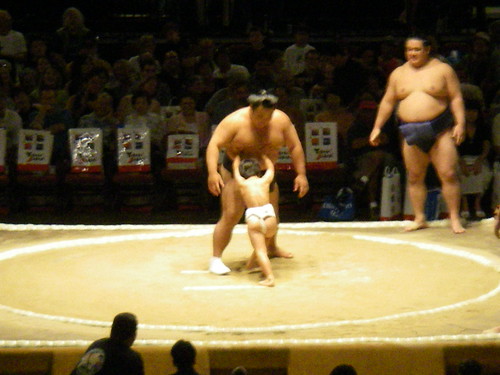Gardening Reduces Stress
ress-relieving effects of gardening were hypothesized and tested in a field experiment. Thirty allotment gardeners performed a stressful Stroop task and were then randomly assigned to 30 minutes of outdoor gardening or indoor reading on their own allotment plot. Salivary cortisol levels and self-reported mood were repeatedly measured. Gardening and reading each led to decreases in cortisol during the recovery period, but decreases were significantly stronger in the gardening group. Positive mood was fully restored after gardening, but further deteriorated…
1 min read
How do you split a dinner bill with friends so as to optimize long term happiness?
a Dan Ariely's excellent book Predictably Irrational: Although identifying and fighting the allure of free! is important in order to avoid traps while we are making decisions, there are also some cases in which we can use free! to our advantage. Take, for example, the common experience of going to a restaurant with friends. When the server drops off the check at the end of a meal, people often scramble to figure out the norms for payment. Do we each pay for…
2 minutes
What’s the main thing we can learn from Harvard happiness expert Daniel Gilbert?
ve been rereading Daniel Gilbert's bestselling book Stumbling on Happiness and my main takeaway is this: Much of our unhappiness springs from the fact that we're terrible at accurately remembering how things made us feel in the past, so we make bad choices regarding the future. In Gilbert's own words (and backed up by many studies): We overestimate how happy we will be on our birthdays, we underestimate how happy we will be on Monday mornings, and we make these mundane…
2 minutes
Does being tired make it hard to be happy?
a NurtureShock: Negative stimuli get processed by the amygdala; positive or neutral memories gets processed by the hippocampus. Sleep deprivation hits the hippocampus harder than the amygdala. The result is that sleep-deprived people fail to recall pleasant memories, yet recall gloomy memories just fine. In one experiment by Walker, sleep-deprived college students tried to memorize a list of words. They could remember 81% of the words with a negative connotation, like “cancer.” But they could remember only 31% of the…
1 min read
How To Quickly Increase Confidence And Self-Esteem:
what mom told you and sit up straight: Building on the notion of embodied attitudes, we examined how body postures can influence self-evaluations by affecting thought confidence, a meta-cognitive process. Specifically, participants were asked to think about and write down their best or worse qualities while they were sitting down with their back erect and pushing their chest out (confident posture) or slouched forward with their back curved (doubtful posture). Then, participants completed a number of measures and reported…
1 min read
Research Shows This Will Make You Happier Than Money Does
a Eurekalert: Freedom and personal autonomy are more important to people's well-being than money, according to a meta-analysis of data from 63 countries published by the American Psychological Association. While a great deal of research has been devoted to the predictors of happiness and life satisfaction around the world, researchers at the Victoria University of Wellington in New Zealand wanted to know one thing: What is more important for well-being, providing people with money or providing them with choices and…
2 minutes
Are Olympic Bronze medalists happier than Silver medalists?
s. Silver medal winners are more inclined to compare themselves to gold medal winners. Those who got the Bronze usually compare themselves to someone who didn't get a medal at all: Research on counterfactual thinking has shown that people's emotional responses to events are influenced by their thoughts about "what might have been." The authors extend these findings by documenting a familiar occasion in which those who are objectively better off nonetheless feel worse. In particular, an analysis of the…
2 minutes
Is ass-kissing good for your health?
is new research shows that when politically savvy professionals use the coping skill of ingratiation, they may neutralize ostracism and other psychological distress that other less savvy individuals have to cope with in the workplace. Ostracized employees experience more job tension, emotional exhaustion and depressed mood at work. Savvy career minded individuals have known for some time that ingratiating oneself to the boss and others -- perhaps more commonly known as 'sucking up'- can help move them up the corporate…
1 min read








